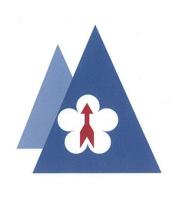| Language Policy |
1. In senior forms, students can choose to study some of the elective subjects in English. <br>2. In senior forms, students are streamed according to their English standard and small-group teaching is implemented in the English lessons. <br>3. Enhancement and Enrichment classes are organized for Chinese and English to boost their performance.<br>4. Morning assemblies on Wednesdays are conducted in either English or Putonghua.<br>5. Morning reading periods are conducted on Tuesdays and Thursdays. |
| Learning and Teaching Strategies |
Through student-centred teaching strategies, curriculum tailoring and small-group interactions, students develop the study skills and self-learning abilities necessary for lifelong learning. The School has formed sister schools with seven secondary schools, one in Taiwan and six in China. This partnership allows students to take learning opportunities out of Hong Kong. |
| School-based curriculum |
1. Electives: 2X and 3X. 3X (S.5-S.6).<br> 2. Curriculum highlights: A diversified and life-related curriculum has been developed to broaden students' horizons and learning experiences. There is curriculum integration across some of the subjects.<br>3. A learner-focused approach is adopted in the implementation of the four key tasks.<br>4. The curriculum is tailored to address students’ diverse needs and abilities.<br>5. Drama-related techniques are integrated into the formal English and Chinese curriculum. <br>6. A school-based curriculum for 'Other Learning Experiences' focuses on students' development in music, physical education, art, and moral and social aspects. |
| Approach to Catering for Learner Diversity |
1. Small-group teaching is implemented in senior form English lessons. 2. Teaching assistants are employed to conduct tutorial classes and give students extra support. 3. Newly-arrived children are supported in adopting to the new environment. 4. Students with financial difficulties are offered after-class courses to help with their schoolwork. 5. Sponsoring students to take DSE mode exams. |
| Approach to Integrated Education |
1. Through policy, culture and measures, we can use the resources of school to take care of students with special educational needs with the "three-tier support model".<br>2. To implement cross-sectoral operation, optimize the support of students with special needs through the professional advice of educational psychologists and speech therapists, and develop a "people-oriented" school-based integration education. <br>3. Develop learning files for students and track the progress of students' learning from the "one-page file" to improve their learning performance. Write a support excerpt and use the "home-school cooperation" to build a more comprehensive support network for students. |
| Education Support for Non-Chinese Speaking (NCS) Students |
|
| Home-School Co-operation |
The School is aware of the importance of home-school cooperation and takes the initiative to seek parents’ opinions on student-related matters. The Executive Committee of Parent-Teacher Association holds meetings and activities regularly, and participates actively in annual school events such as the Athletic Meet and Open Day. |
| School Ethos |
The School has established a caring ethos and has won the Caring School Award. It does its best to maintain a school environment conducive to learning, discipline training and value education. Our teachers are experienced in assisting newly-arrived children and non-Chinese speaking students in adapting to the local education system. The Discipline Team, Guidance Team, Extra-curricular Activities Team and Careers Guidance Team work in collaboration to organise programmes which suit the needs of different students, with a view to nurturing their self-discipline and leadership abilities. |
| School Development Plan |
1. To further refine pedagogy and enhance the learning experience, to promote proactive learning and open up new horizons for students so as to meet community needs;<br>2. To promote leadership education and to help students raise their self-esteem;<br>3. To utilize the information technology platform effectively, to enhance training in performing arts and develop multiple intelligences in students. |
| Teacher Professional Training and Development |
The Staff Professional Development Team is responsible for teachers’ continued training and development. The School has allotted funds to encourage teachers to take courses to enhance their professional or personal development. |
| Life-wide Learning |
1. Activities offered by the School fall into five categories: performing arts, clubs, interest groups, uniformed groups and sports. There is a variety of clubs and teams such as Flag-guards, Scouts, Red Cross Youth Unit, Chinese Club, English Club, STEAM Club, Debating Team, Citizenship and Social Development Club, Music Club, Sports Club, Drama Club, and Christian Fellowship.<br>2. There are meaningful activities for students, including leadership training activities, social services, visit to universities, cultural exchange tours, visits to sister schools, and so on. These activities can broaden their horizons while boosting their confidence and leadership abilities.<br>3. Our school has established a training base for artistic talents by working closely with the Alumni Association, Hong Kong Art School, Leisure and Culture Services Department, etc. in fostering students’ artistic development. |
